- Home
- Helen Dunmore
Zennor in Darkness
Zennor in Darkness Read online
PENGUIN BOOKS
ZENNOR IN DARKNESS
Helen Dunmore has published nine novels with Penguin: Zennor in Darkness, which won the McKitterick Prize; Burning Bright; A Spell of Winter, which won the Orange Prize; Talking to the Dead; Your Blue-Eyed Boy; With Your Crooked Heart; The Siege, which was shortlisted for the 2001 Whitbread Novel of the Year Award and for the Orange Prize for Fiction 2002; Mourning Ruby and House of Orphans. She is also a poet, children’s novelist and short-story writer.
HELEN DUNMORE
ZENNOR IN DARKNESS
PENGUIN BOOKS
PENGUIN BOOKS
Published by the Penguin Group
Penguin Books Ltd, 80 Strand, London WC2R 0RL, England
Penguin Group (USA) Inc., 375 Hudson Street, New York, New York 10014, USA
Penguin Group (Canada), 90 Eglinton Avenue East, Suite 700; Toronto, Ontario, Canada M4P 2Y3
(a division of Pearson Penguin Canada Inc.)
Penguin Ireland, 25 St Stephen’s Green, Dublin 2, Ireland (a division of Penguin Books Ltd)
Penguin Group (Australia), 250 Camberwell Road, Camberwell,
Victoria 3124, Australia (a division of Pearson Australia Group Pty Ltd)
Penguin Books India Pvt Ltd, 11 Community Centre, Panchsheel Park, New Delhi – 110 017, India
Penguin Group (NZ), 67 Apollo Drive, Rosedale, North Shore 0632, New Zealand
(a division of Pearson New Zealand Ltd)
Penguin Books (South Africa) (Pty) Ltd, 24 Sturdee Avenue, Rosebank, Johannesburg 2196, South Africa
Penguin Books Ltd, Registered Offices: 80 Strand, London WC2R 0RL, England
www.penguin.com
First published by Viking 1993
First published in Penguin Books 1994
This edition published 2007
1
Copyright © Helen Dunmore, 1993
All rights reserved
The moral right of the author has been asserted
Except in the United States of America, this book is sold subject to the condition that it shall not, by way of trade or otherwise, be lent, re-sold, hired out, or otherwise circulated without the publisher’s prior consent in any form of binding or cover other than that in which it is published and without a similar condition including this condition being imposed on the subsequent purchaser
ISBN: 978-0-14-193925-4
One
One faint shriek. Then another. Three girls fling themselves over the top of the last dune and skid down warm flanks of sand. Marram grass slashes their ankles and sand kicks up behind Clare and Peggy, into Hannah’s eyes. She’s the heaviest and the last. Dazzled, laughing, out of breath, prickling with sweat under their dress-shields, they flounder through the knee-deep shifting white sand, and then down and down in a heap on the hard, flat beach. Clare and Hannah collapse together, their mouths full of each other’s hair. Their ankle boots are heavy with sand. Their hair has come down, and their straw hats flop against their shoulder-blades. They clasp each other. They smell of sweat and sunburned hair, and there’s a faint smell of violet perfume from Hannah, who has lavished the last precious drops of Wood Violet on her wrists and under her ears. She doesn’t know where she will get another bottle, but today she has something to celebrate. There is her half-day’s holiday from the shop, there is this perfection of early summer, and, above all, kept until last for fear of the ill-luck which always trudges in the wake of complete happiness:
‘Johnnie’s coming home!’ she sings out, throwing herself on her back and kicking up her legs into the blue dizzy tunnel of sun above them. Peggy and Clare smile into the sky, but they say nothing. They have talked the subject out on the long walk over from St Ives. John William is coming home. Only Hannah sometimes still calls him Johnnie. Clare has known the news since early morning, when Nan sent Kitchie flying up with a message to say that John William was coming home because he was going to be made an officer.
‘It means he’s got to go to a camp,’ said Kitchie, gulping tea and bread and margarine in the Coyne kitchen, ‘a training camp for officers. He’ll be in England for three months – could be more. And by then the war might be over, Nan says.’
Beady Peggy knows, because she’d happened to call in at the draper’s when she was taking little Georgie for a walk that morning, and there was Hannah slashing radiantly at puce ribbon for Hetty Date, cutting off a piece a good twelve inches longer than the two yards Hetty paid for. I ought to get a length of cream ribbon for my panama, calculated Peggy, hoisting stout Georgie on to the counter stool.
‘Why couldn’t John William have sent a telegram, anyway?’ she asks now, prettily critical as always. They all know that John William’s letter was posted in London, and that he hadn’t made it clear exactly when he had been sent back from France, or how much leave there would be before he had to report at the camp. But they’ll know all this soon, once he is home.
‘I’d a thought he’d come straight home,’ says Peggy brightly, slipping a glance from Hannah to Clare. The cousins close up immediately, just as she knew they would, like a couple of sea-anemones when you poke them. Those Treveals. So close you can’t get a knife in between them. All the same, Peggy likes to try.
‘Don’t be stupid, Peggy,’ says Clare. ‘He wouldn’t send a telegram. Think what it might do to Aunt Sarah.’
It’s true that Sarah Treveal’s a poor thing, unsteady in her nerves, but who can blame her when telegrams have only one meaning these days. The sight of a post office boy coming up the street is enough to stop anybody’s heart. When Mrs Hore had the telegram about William she chanced to have fetched out a kitchen chair to sit in the sun on her step, and so she was forced to watch the telegraph boy on his bicycle as he rode down the street, whistling in the sun, and then slowed down and stopped his whistling when he saw her, out of respect for what he guessed he had in his hand. He got off his bike and wheeled it towards her, and he held out the envelope in his left hand. A boy of fourteen. What did he know about the weight of what was in that weightless bit of paper? He handed the telegram to Mrs Hore, and then he seemed to be waiting for something, so she went in to fetch a penny for him. She did this before opening the envelope. There was no need to make haste. She knew what was in it, she told Nan, because her eyes had burned in her head as she watched the bicycle come down the street, just as if she’d been foolish enough to stare into the sun.
‘I could read him, the way he looked at me,’ she said. ‘I needn’t a had the telegram at all.’
It’s a rare hot Saturday in May, and the girls are out in it, free for the afternoon. Hannah is free until she has to go back to sprinkle the shop-boards with water and sweep the dust. Peggy is not required until six o’clock, because little Georgie’s parents are taking charge of him themselves for once, and he is going to visit his grandmother. Not required like a piece of luggage which is indispensable but can go in the guard’s van for the time being, thinks Clare. And Clare has done her week’s baking, and made her father turn out of his study while she cleaned it. Her bread came out of the oven hard and grey, but even Francis Coyne is unlikely to be fastidious about it. No one can do better now, not with this flour. It is all they can get, and Clare knows they are lucky to have it. In the cities women queue for hours, and besiege the bakers’ shops as soon as they open. But she won’t think of that now. It is Saturday afternoon, and she is lying in the sun, which fixes on her dark dress like a burning-glass, soaking away the tiredness in her thigh muscles. Out of the wind, it is almost too hot. She hoists herself up on her elbows, and the wind tugs at her again. The coast and country stream with light. Sea and grass pucker like cat’s fur under the warm May wind.
The girls’ hair flaps across their eyes. They struggle to catch up th
e ends and pin them tight, but it’s no good. Oh, well, what does it matter.
‘Keep still, Peggy, till I pin it up.’
Flushed, giggling, they start to put themselves to rights.
But not Clare.
‘God above, Clarey, what are you doing?’
Clare’s fingers flicker down the hooked side-fastening of her dress. She’s done it. She hauls up a double handful of the dark blue cotton stuff and pulls it over her head. Her close-fitting bodice sticks, and she wriggles herself free of it. The last of her hairpins comes out and her plait swings loose, then begins to unrope itself, strand over strand. In her plain white chemise and petticoat she bends to unlace her boots, then kicks them off. Hannah and Peggy watch her. A slow smile curls at the corners of Hannah’s mouth.
‘You’re never going in!’ she breathes.
Clare strips off her stockings. Now petticoat, chemise, stays…
The warm wind blows across her body. She shivers with delight, raises her arms.
‘Oh, it’s lovely!’
Hannah glances at Peggy. They both look round.
‘There’s no one to see us,’ says Clare.
And it’s true. Behind them the Towans are bare and dazzling. The wide beach curls away towards the estuary. Larks scream as if they have thrown themselves up into the sky and stuck there. Over the sea there are gulls slanting across the bay with scarcely a wing-beat, tilting, balancing themselves on currents of air. The tide is nearly full now, and the small waves are tipped with foam by the wind.
‘What about the coast-watchers?’ says Peggy.
‘There’s no one around,’ says Clare. ‘Oh, come on. You did last year.’ Before you went to work for the Smythes and learned to run like a hen and stick your finger out when you drink tea, she thinks.
She stands there, making her arms swim through the air. She is white and glistening in the stream of light reflected off the sea. In her dark blue dress she looks as shallow-breasted and narrow-hipped as a young girl, but naked she is bigger. White, firm, curved, imperfect. She is older.
‘Oh, go on, then,’ says Hannah, beginning to undress. Clare twists her hair up to keep it out of the salt and tramples her dress out from under her feet. Hannah folds her skirt and bodice. Her big dark-tipped breasts swing free as she pulls off her petticoat. Peggy takes off her neat pearl-grey skirt and striped blouse. Then she hesitates, eels her way out of her petticoat, but will not take off anything more. No sense in trying to persuade her. Peggy is sweetly smiling and delicate and biddable; Peggy is also as stubborn as…
‘Stubborn as a cat,’ Clare said once. ‘She’ll purr and wind herself round you until you think you can do what you like with her, but have you ever seen her do anything she didn’t want?’
Now they are ready. Suddenly they’re ageless, girls from anywhere, from any time. They catch hands and run towards the water. Hannah and Clare run straight and easy, seaside girls who are used to broad, flat sands, and to roads over the moors with the wind against them. Peggy has learned a more ladylike way of throwing out her legs from the knee. She runs ineffectually: perhaps she is expecting someone to help her? Peggy is the slightest and smallest of the three. Her body bows, sheltering itself.
The girls stop by the water’s edge. Peggy raises the hand which isn’t holding Clare’s, and shades her eyes.
‘Fishing-boat coming in,’ she pants.
But it’s so far away that they don’t need to bother about it. No one will see them at that distance. It’s just a black speck among the bob and glitter of the waves. Peggy’s always had better eyesight than anyone else.
The water grips their ankles like an icy bracelet. They spring back, then slowly, cautiously, in again, then back as a bigger wave licks up their calves.
‘Mother of God!’ says Clare, hopping on one leg.
‘There’s only one way to do it,’ says Hannah. Once again she’s the guardian of their childhood, the one who always knew how cold the water was, how far out they should swim, how long it was before they had to go home. The one who packed their jam sandwiches and bottle of tea into wet cold sand under the rocks so that it would be cool at dinner-time, while Clare and John William ran off heedlessly, straight into the sea…
‘One… two… three…’ chants Hannah, forcing them all deeper into the water, but Clare and Peggy wriggle out of her grip.
‘It’s all very well for you,’ complains Clare, eyeing Hannah’s thighs and buttocks. ‘You’re subcutaneous.’
But Hannah isn’t listening. Eyes shut, blind with purpose, she feels her way into deeper water. The water surges up her, splashing her thighs, pubic hair, belly. She dips her hands in the water and rubs them over her shoulders.
Then she’s in and swimming. Paddling like a dog, she swings round to the shore, shouting, ‘First in! First in!’
‘Come on, Peg, or we’ll never hear the last of this,’ says Clare. The next wave rolls water up her thighs, and she gasps and shrinks away from it, standing ridiculously on tiptoe.
‘Aaah! Aaah!’
Hannah wallows, laughing at Clare. She raises an arm to splash her cousin all over her tender stomach and breasts with a thousand prickling icy needles –
‘No! Don’t! I’m coming in.’
Clare presses her lips tight and charges, galumphing into the waves. Waves slap, water shimmies on her eyelashes. She’s in. She turns like a fish, so cold that at first she can’t even breathe, then she gives out a long gasp and a scream to Peggy who is still hovering in the shallows.
‘I’m in! I’m in!’
It’s too cold to swim. Hannah and Clare roll and bathe in waist-deep water, just where the waves break. Clare’s hair straggles down her body. They call and threaten and scorn, but they can’t get Peggy in. She is paddling dreamily along the edge of the water, stirring the sand into clouds. Her head is down.
‘I’m getting out,’ Hannah chatters. ‘You’d better. You ought to mind your chest.’
‘In a minute,’ Clare replies.
Second in, she must be second out. And she wants the sea to herself for a minute, the noise and swell of it, her bare flesh rocking in salt water.
But it’s too cold. So cold you could die of it. Slowly, legs dragging, she hauls herself out. The sea is thick and resistant. The wind doesn’t feel warm any more. Hannah is lolloping along the beach, getting dry. They have no towels. Aching with cold, Clare begins to walk up the beach. Behind her the sea sighs like a disappointment.
Hannah has chocolate in her pocket. She can save a handful of sweets all week, so as to cram all her pleasures into the one afternoon that’s her own. She doesn’t have to go to the shop on Sundays, but she might as well. Sunday is chapel, teaching Sunday school, cooking for the family because Aunt Sarah needs to lie down after the walk back from chapel. Aunt Sarah has a female complaint which she will confide to any other female who can endure the mosquito whinge of her voice and the meaty, intimate smell of her breath. Clare shudders. Every Sunday Hannah bastes the meat, and her faint scent of violet is drowned in fumes of gravy and fat.
But even on this perfect day something is missing. Hannah has not had her letter from Sam. There is no new, limp envelope in her pocket, so new that it hasn’t yet moulded itself to Hannah’s curves. And it’s the end of the week, so she should have had a letter by now, or at least a postcard. Perhaps he’s on the move again, to another of those places he’s not allowed to name. She knows other girls who’d worked out a code with their best boy before he was sent out to France, but she and Sam hadn’t bothered. Sam was not much of a one for writing, and Hannah doubted privately whether he would have remembered any code had they managed to invent one. Besides, it had begun to seem as if Sam would never be sent out. He was in barracks so long, and then he caught chicken-pox and had it badly, when the rest of his draft went out. He was so bad that he was put in the isolation ward of the military hospital, and the letter she had from him there was baked brown from its fumigation. But just when they were getting used to
the precarious safety of Sam being nowhere in particular, neither a soldier in training nor a soldier at the front, he was sent out with the next draft.
He’s never been a good letter-writer. She shouldn’t worry so much. Only a thin few lines each time, hoping this finds you as it leaves me, and always the same love at the bottom. His letters are never clean. She holds them up to her mouth and nose and breathes in the musty, terrifying smell of them. But they mean safety, another week of confidence that she’s going to get him back again, brown and strange and maybe with that blind-drunk look in his eyes she’s seen in other men on the train back from Bodmin Barracks, on leave. But there’ll be nothing wrong with him which she can’t cure, she is sure of that. No matter what, she only needs to get him back again. She shivers, thinking of the smell of him. His hands. The way he leans back and groans as if she is hurting him. She rubs her legs briskly with her petticoat and shivers again.
The chocolate is soft and warm. Peggy won’t take any. She hasn’t got cold, like the others, she says. And chocolate is precious. Clare lets her small piece melt under her tongue and spread out across her palate. Her body starts to tingle. She snuggles into a warm hollow of sand and shuts her eyes. She can hear the sand hissing, moving past her ears where her weight has disturbed it. When she was a child, Father warned her not to dig here in case she set the sand moving. There’d been a boy buried one July afternoon, when Clare was five. A visitor’s child. They scrabbled to get at him, but it was no good. His mouth and his eyes and his ears were full of sand. His face was blue and bulging by the time they got to him, though her father did not tell her that. It was Uncle John, big and doom-laden in Nan’s kitchen. And the state of the poor boy…
He’d shat hisself all over, said John William secretly, when the children were kneeling by the kitchen fire in the near-dark.
She thinks now of the boy’s desperate fight against the sand which feels so soft and loose and playful until it’s on top of you. Maybe it began as a game. He was pretending to be buried, then suddenly the sand was too high and beginning to squeeze in on him, and he called out, though at first he thought it was part of the game and in a moment the sand would give way and turn back into that easy soft stuff he could make into castles and dams. But the sand hissed at him again and then he could not turn his head for the weight of it and he was screaming until it filled his mouth and nose and he breathed it in, dragging it down into his lungs, dry and parching, and then the sand covered his eyes. Still no one could get at him.

 The Ingo Chronicles: Stormswept
The Ingo Chronicles: Stormswept The Deep
The Deep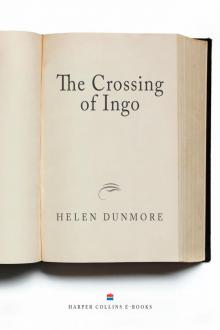 The Crossing of Ingo
The Crossing of Ingo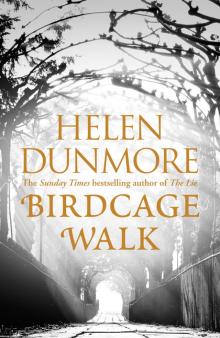 Birdcage Walk
Birdcage Walk Glad of These Times
Glad of These Times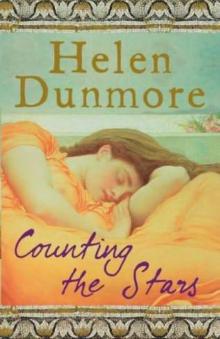 Counting the Stars
Counting the Stars With Your Crooked Heart
With Your Crooked Heart Burning Bright
Burning Bright House of Orphans
House of Orphans Mourning Ruby
Mourning Ruby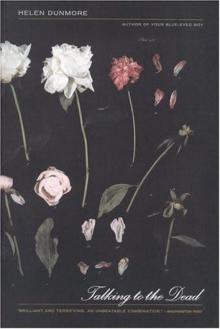 Talking to the Dead
Talking to the Dead Exposure
Exposure Ingo
Ingo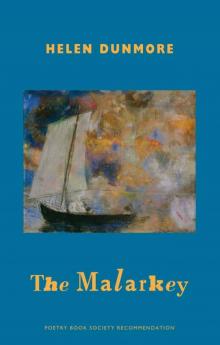 The Malarkey
The Malarkey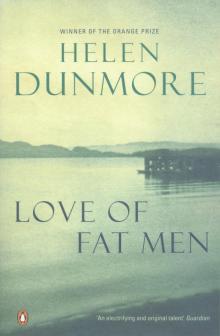 Love of Fat Men
Love of Fat Men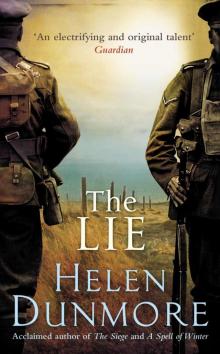 The Lie
The Lie The Siege
The Siege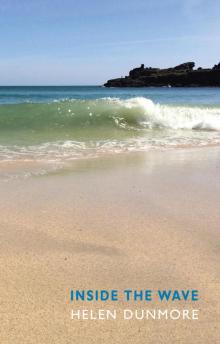 Inside the Wave
Inside the Wave Counting Backwards
Counting Backwards The Land Lubbers Lying Down Below (Penguin Specials)
The Land Lubbers Lying Down Below (Penguin Specials)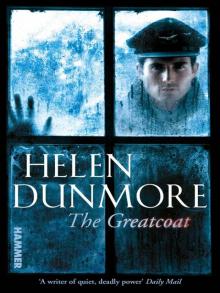 The Greatcoat
The Greatcoat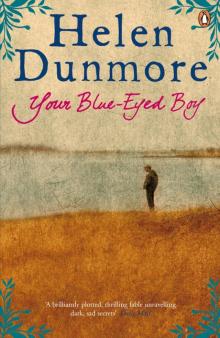 Your Blue Eyed Boy
Your Blue Eyed Boy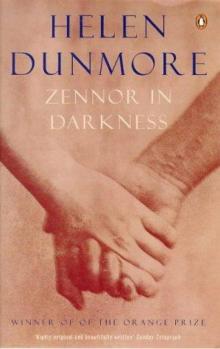 Zennor in Darkness
Zennor in Darkness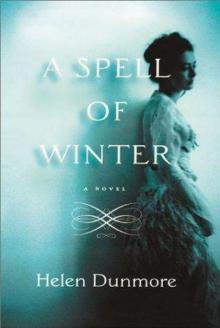 Spell of Winter
Spell of Winter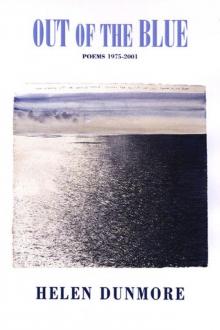 Out of the Blue: Poems 1975-2001
Out of the Blue: Poems 1975-2001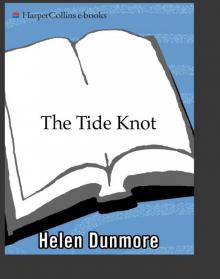 Tide Knot
Tide Knot The Betrayal
The Betrayal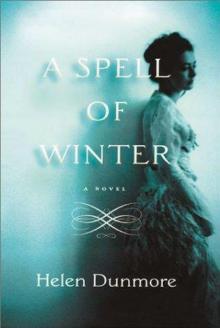 A Spell of Winter
A Spell of Winter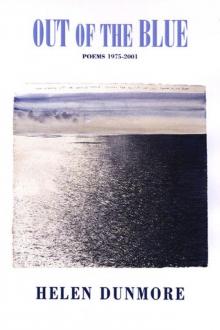 Out of the Blue
Out of the Blue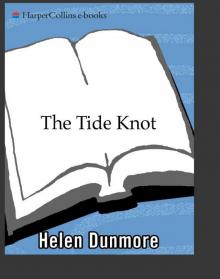 The Tide Knot
The Tide Knot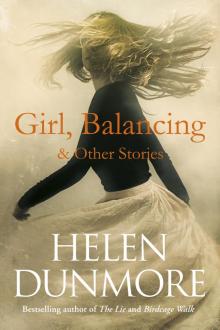 Girl, Balancing & Other Stories
Girl, Balancing & Other Stories Betrayal
Betrayal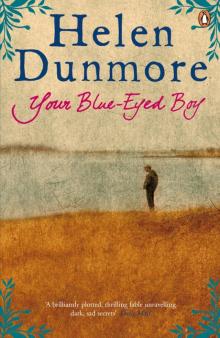 Your Blue-Eyed Boy
Your Blue-Eyed Boy